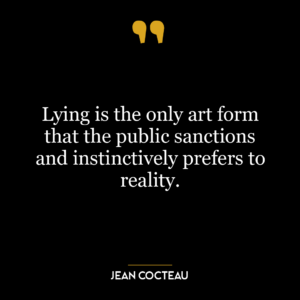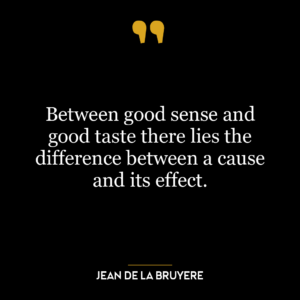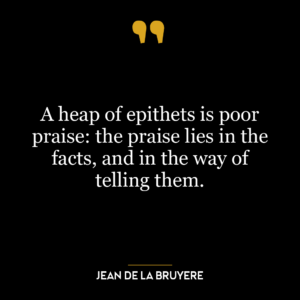This quote, “And nobody lies as much as the indignant do,” is a profound observation about human behavior. It suggests that those who are most indignant – that is, those who are most filled with anger or annoyance provoked by what they perceive as unfair treatment – are also the most prone to dishonesty. The underlying idea here is that indignation often stems from a place of self-righteousness and moral superiority. When people feel indignant, they tend to justify their actions and thoughts, even if they have to resort to dishonesty to do so.
This dishonesty can manifest in various forms, such as exaggeration, distortion of facts, or outright lies. The indignant person may lie to others to gain their sympathy or support, or they may lie to themselves, refusing to acknowledge their own faults and responsibility in a situation. In their eyes, their cause is so just and their anger so warranted that any means to defend or promote it becomes acceptable, even lying.
In today’s world, we can see this concept play out in many scenarios. In politics, for example, politicians often express indignation about various issues to rally their supporters, but their narratives may not always be entirely truthful. In personal relationships, people may feel indignant about perceived wrongs and resort to dishonesty to justify their feelings or actions.
As for personal development, understanding this idea can help us be more self-aware and honest. When we feel a strong sense of indignation, we should take a step back and evaluate our feelings and thoughts objectively. Are we being entirely truthful, or are we bending the truth to fit our narrative? By acknowledging this tendency, we can strive to be more truthful, even when we feel wronged or angry. This self-awareness and honesty can lead to better decision-making, improved relationships, and overall personal growth.
















